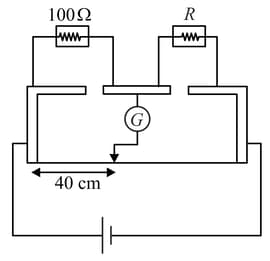Embibe Experts Solutions for Chapter: Physical World and Measurement, Exercise 1: Exercise - 1
Embibe Experts Physics Solutions for Exercise - Embibe Experts Solutions for Chapter: Physical World and Measurement, Exercise 1: Exercise - 1
Attempt the free practice questions on Chapter 3: Physical World and Measurement, Exercise 1: Exercise - 1 with hints and solutions to strengthen your understanding. Alpha Question Bank for Engineering: Physics solutions are prepared by Experienced Embibe Experts.
Questions from Embibe Experts Solutions for Chapter: Physical World and Measurement, Exercise 1: Exercise - 1 with Hints & Solutions
For a cubical block, error in measurement of sides is and error in measurement of mass is , then maximum possible error in density is,
To estimate (from ), error in measurement of is and error in measurement of is . The error in estimated will be,
The dimensions of a rectangular block measured with a vernier calipers having least count of is . The maximum percentage error in measurement of volume of the block is
An experiment measures quantities and then is calculated from the data as . If percentage errors in and are respectively , then percentage error in is:
The external and internal diameters of a hollow cylinder are measured to be and . The thickness of the wall of the cylinder is
Two resistors and are joined in series. The equivalent resistance is
In a meter bridge circuit, the known resistance used in resistance box is (without any error and the unknown resistor is put in right arm). The null point is found to be from the left end. If scale is used in the meter bridge then the resistance of the unknown resistor is:

In the formula , the quantities and have the dimensions of capacitance and magnetic induction, respectively. The dimensions of in the MKS system are,
